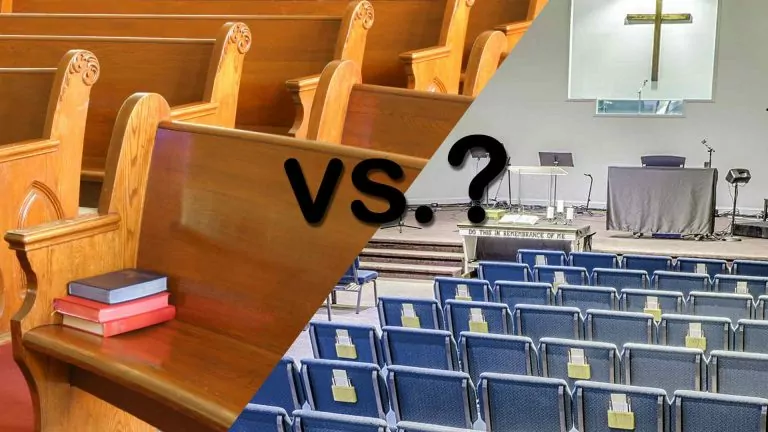Many moons ago, in the days of Pine, Lynx and dial-up modems, there was an online discussion group known as Ref-net. I can’t say I was among the first participants of this e-mail forum, but I’m quite sure I got in while it was still made up mostly of university students. We were exploring what it means to be Reformed Christians in cyberspace. All sorts of ideas were up for debate, including public worship.
RPW in the HC
Through the Ref-net I met a friend from South Africa who introduced me to the “Regulative Principle of Worship” (RPW). What is the RPW? While, you can find it the Three Forms of Unity – though I had never really noticed it before – and it is most clearly stated in Heidelberg Catechism Answer 96 where it declares:
“We are not to make an image of God in any way, nor to worship him in any other manner than he has commanded in his Word.”
Worshiping God only as He has commanded: this is one of the rudiments and distinctives of Reformed worship.
I became involved in a number of discussions about Reformed worship on the Ref-net. These ranged from general wrangling about the RPW as such, to specific polemics on applications of the RPW to questions like psalm-singing and “days of commemoration.”
One of the objections I heard to the RPW in general was that it was impractical. If we’re to worship God only as he has commanded, then where has God commanded us to worship at 9:30 AM? Why do we sit in pews when God hasn’t commanded that? In these and many other ways, no Reformed or Presbyterian church really follows the RPW. To the lurkers it must have appeared as if this objection had just detonated the RPW into oblivion.
Elements vs. circumstances
However, this gotcha moment didn’t last very long. It was quickly noted that the RPW comes with an indispensable distinction. When it comes to public worship, Reformed theologians have often distinguished between elements and circumstances. Elements are the things God commanded in Scripture for public worship, things like preaching, singing, the reading of Scripture, prayers, etc. Elements are governed by the RPW.
Circumstances are the incidental things which surround the elements. Circumstances include things like the time of worship, whether one sits on pews or chairs, what temperature the room will be, and far more. Circumstances are not governed by commands from the Bible, but by wisdom and discretion informed by the Bible.
It’s true that this distinction doesn’t appear in the Heidelberg Catechism. Since the Catechism was written for children, you shouldn’t expect it to. But Zacharias Ursinus (its main author) does use this distinction in his theological commentary on the Catechism. It was also employed by Puritans such as John Owen and Jeremiah Burroughs.
Not surprisingly then, it becomes part of the Reformed confessional heritage in Westminster Confession 1.6, speaking of circumstances in worship “which are to be ordered by the light of nature and Christian prudence, according to the general rules of the Word, which are always to be observed.”
But is it biblical?
The historical pedigree of this distinction is sound, but the most important question is whether it’s biblical. Certainly in the New Testament we see believers worshipping God in a variety of places – homes, synagogues, and even the temple. We see believers worshipping God at different times: evening, late evening, and morning. This sort of variability observed in Scripture is what undergirds this distinction. Outside of the elements commanded for worship, God grants liberty to his church to order the circumstances wisely.
Debate continues
This distinction doesn’t instantly solve every question in Reformed worship. There are disagreements amongst Reformed and Presbyterian liturgists about what constitutes elements and circumstances. Probably the most well-known example has to do with musical instruments. Some, such as myself, would contend that musical accompaniment (done judiciously) is circumstantial. Others would maintain it has the character of an element and, since it is not commanded in the New Testament, it cannot be justified by the RPW. Note: both sides fully affirm the RPW. However, they differ at the application of it, specifically when it comes to defining elements and circumstances. And no, it’s not a matter of “strict” RPW versus “loose” RPW. You either hold to the RPW or you don’t.
While those disagreements can be quite intense at times, we do well to note the broad consensus existing amongst confessionally Reformed churches. There’s unanimous agreement that things like the time of the worship services and the type of seating are circumstantial. Whether you worship in a custom-built church building or use a school gymnasium – God-pleasing worship in Spirit and truth can happen regardless.
Conversely, we all agree that what matters are the God-commanded elements. Without elements like the reading and preaching of Scripture and prayer, you simply don’t have Reformed worship. You have something less than authentic Christian worship. Because of our love for the Saviour and what he’s done, we want to follow his Word carefully when it comes to the content of our worship. But we’ll also be careful about imposing our own opinions where God has granted liberty to be different.
For more on Reformed worship, be sure to check out Dr. Bredenhof’s book “Aiming to Please: a Guide to Reformed Worship” (Amazon.com/Amazon.ca). And be sure to watch his interview with Focal Point host Chris deBoer below.












